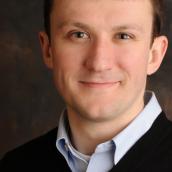Compute for All: Accessible Compute and What It Means for the Future of Science
Session Details
Session Abstract
One technology trend that will shape innovation in the healthcare and life sciences arena this century is increased access to computing to analyze data, simulate, and do science in silico via the cloud. When scientists and researchers are no longer limited by fixed-size compute and data capacity, we get better, faster science. We're now able to create utility supercomputers of up to 50,000 cores in the cloud, for less than $1,000/hour, for small research labs to Big 10 Pharmas. Utility HPC and supercomputing make what was once impossible science, possible.
This presentation covers real world use cases for companies including Novartis, Johnson & Johnson, Genentech, Schrödinger, Life Technologies, and Pacific Biosciences. We'll cover lessons learned in deploying utility HPC for various sciences including Genomics, Molecular Modeling, Simulation, Proteomics, and many more. We'll also cover the most recent 10,600 server Utility HPC environment that ran 40 years of computing for a Big 10 Pharma, in 11 hours, for $4,372 total.
Jason Stowe, CEO of Cycle Computing, a provider of utility supercomputing software that orchestrates high performance computations in the cloud, will share with you his insights on the future of science in a world with accessible compute. Jason will touch on his client’s use cases, which include everything from cancer drug research to stem cell indexing.
Across the life sciences industry the positive effects of accessible compute have been felt. Researchers can attack disease in a much more efficient and thorough manner by aggregating larger sets of data across patients. They then can use that information to more appropriately treat diseases and create drugs. Another benefit of this compute power is new algorithms that were not possible before because they would be too compute intensive to justify the cost to run every time a drug needed to be tested. Since it is now possible to rent supercomputing capabilities, companies are much more likely to invest thousands, as opposed to millions, of dollars on running intensive computations.
Speaker









